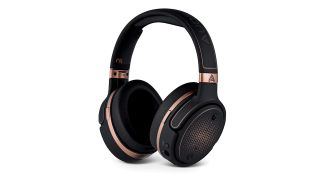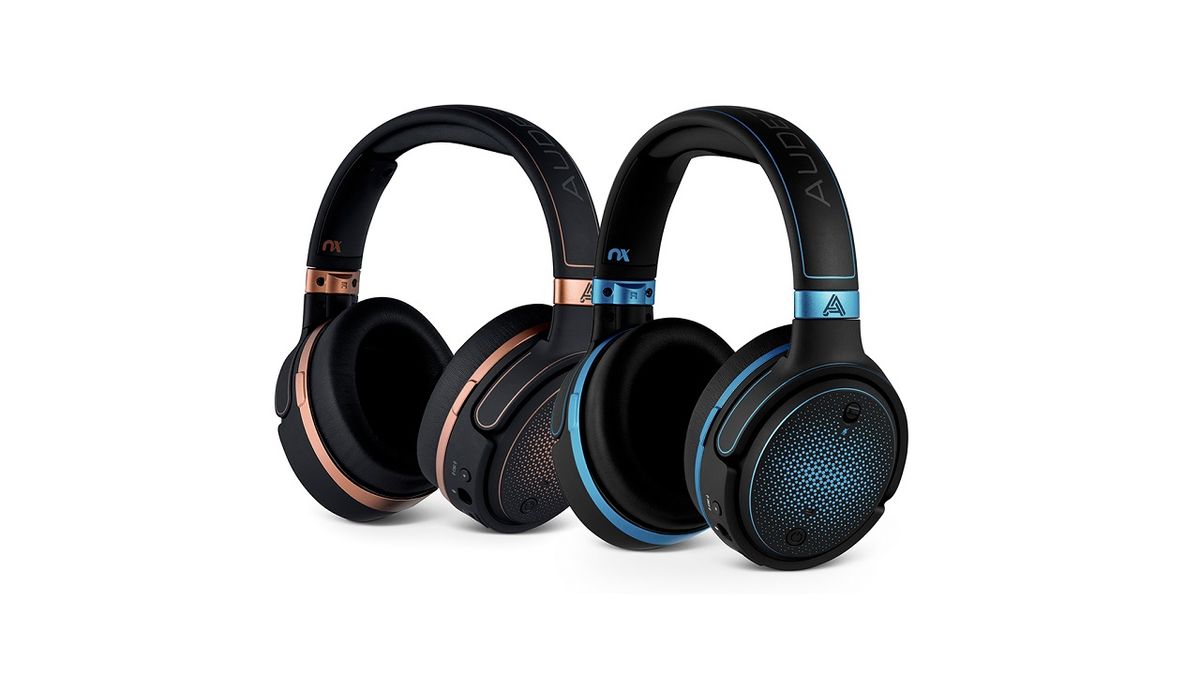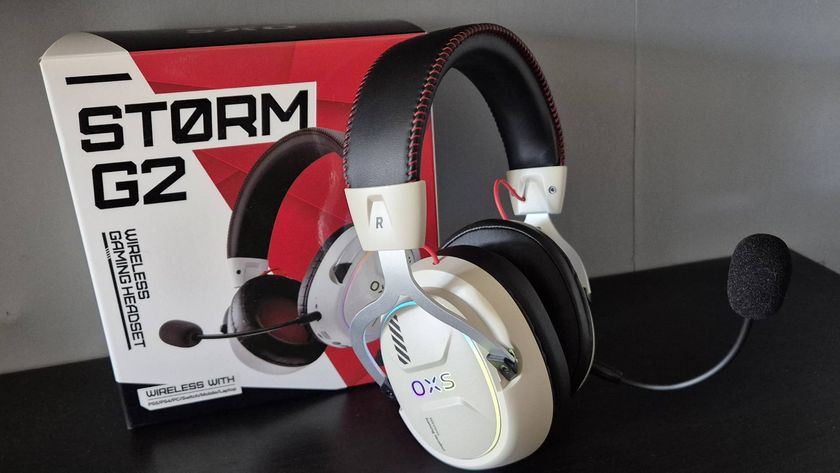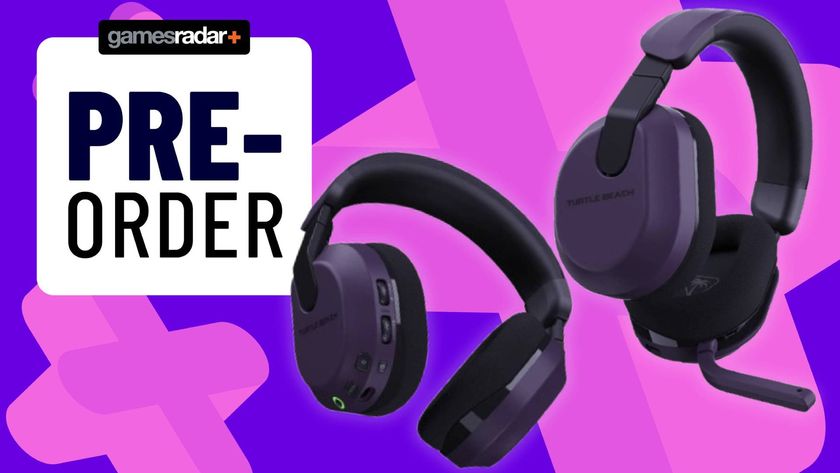12DOVE Verdict
An excellent, beautifully designed set of headphones with only minor quibbles; interesting features match with premium sound, though at a premium price
Pros
- +
Crystal clear sound
- +
Accurate 3D audio imaging
- +
Planar magnetic driver delivers excellent bass
Cons
- -
MSRP is twice the pre-order price
- -
Oddly molded headband
Why you can trust 12DOVE
Known for high-end, studio quality headphones aimed at dedicated audiophiles, Audeze (pronounced like odyssey) has recently started making inroads into the gaming headset market. Their latest effort, Mobius, aims to bring 3D positional audio and planar magnetic speaker tech to an audience not necessarily interested in shelling out more than a thousand dollars for headphones, and they’ve largely succeeded. The Mobius is a great set of cans sporting some fairly impressive tech, but while they certainly come in well below the price of premium studio headphones, they’re still balanced right on the high edge of gaming headphones pricing.
Where does the Audeze fit into the gaming headset landscape? Take a look at our guides to the best PC headset for gaming, the best XBox One headsets, and our run down of the best PS4 headsets.
Design
A combination of light-weight materials and generous padding make the Mobius easy to wear for extended sessions; they feel substantial but not in a way that makes them uncomfortable to have draped across your head for long periods of time. The added weight of the powerful neodymium magnets the uses in its planar magnetic setup are counter-balanced by the Mobius’ lightweight plastic construction, meaning that while the cans are slightly heavier than many gaming equivalents they’re still lighter than or on par with most studio headsets and don’t feel uncomfortable even through marathons of Red Dead Redemption 2.
The comfort factor is further boosted by a memory foam headband (that’s incredibly flexible and durable) and memory foam earpads, and the earcups fit easily even over larger ears. While the headband sits comfortably on your dome, I have a minor quibble with the overall form factor. The band stretches horizontally across your head rather than being curved at the peak to fold around it, so the cans look a bit wide perched on your head compared to other headphones.
Otherwise Mobius is an extremely attractive headset, especially for gamers starved for a classy looking pair of headphones that aren’t bedazzled with a glut of RGB lighting or massive, garish chrome logos. They’re sleek and understated in turquoise or copper over black, and have the look of a mature PC peripheral in lieu of the flash and pomp of a lot of the dross currently being marketed to gamers.

Features and performance
The headlining feature here is the 3D positional audio; the headphones create a soundstage constructed in part based on the room in which you’re listening, the dimensions of which you can calibrate through an approachable software package (their software suite also helpfully allows you to customize HRTF settings to suit the shape of your ears, and tailor custom sound profiles). With the right input, the 3D effect is suitably impressive; sounds can be precisely isolated in space regardless of how you move your head and body. It’s a slightly disorienting experience in a non-VR environment, when your eyes are only registering images on a single 2D plane while your ears are hearing things in space all around you.
In practice the result is a net increase in realism and immersion, but don’t expect to precisely hear the approaching footsteps of a would-be assassin creeping up behind you in PUBG. PUBG, like many games, outputs in stereo or via limited binaural emulation, meaning that its positional audio is more a rough approximation than a precise calculation. The 3D soundstage the Mobius offers works best with audio specifically designed to show it off to best effect, real binaural or 3D recordings, and games in particular struggle with precision audio imaging. The idea that Mobius tracks and relays head movements more than a thousand times a second makes for great marketing copy, but the end user experience isn’t a vast improvement over traditional stereo output.
What’s more exciting about the tech in Mobius is the use of planar magnetic drivers inside the headphones. Though planar magnetic tech dates back to the 70s it’s still relatively rare in consumer electronics, but produces significantly better responsiveness than traditional dynamic or even electrostatic drivers, with less tonal break-up and vastly improved bass. The flat wavefront produced by a planar driver interacts with the geometry of the ear in a much more natural way than spherical waveforms, which adds welcome realism to rendered or composite audio environments like those in games.
Also unlike a lot of their competitors, Mobius offers an array of connectivity options, from Bluetooth (with a generous data bandwidth) to USB-C and 3.5mm aux. It also comes with a very nice detachable boom mic with built in noise reduction, which in my time testing it on PC and PS4 outputs crystal clear audio even with significant background noise.

Overall - should you buy it?
For the tech and sound quality packed into this headset Mobius’ retail price of $399 is not unreasonable and they are some of the highest quality gaming headphones I’ve tested. The only caveat is that they were originally available for pre-order on Indiegogo for a mere $199, so the current, doubled price point feels like a pretty brutal late tax. Still, they’re an easy recommend, and even easier if you can find them on sale: keep an eye on our deals tracker on this review page, which will automatically update with the best available price. And if you're looking for PC games to test out the 3D audio with, look no further than our list of all of the best PC games available right now.
Alan Bradley was once a Hardware Writer for GamesRadar and PC Gamer, specialising in PC hardware. But, Alan is now a freelance journalist. He has bylines at Rolling Stone, Gamasutra, Variety, and more.
Most Popular






